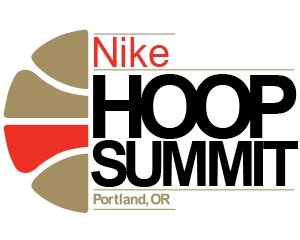The FBI probe broke the story this week of money exchanging hands through a vertical relationship of college coaches, agents, financial advisers, sneaker companies, club basketball and recruits. This is nothing new in basketball.
This “system” has been in place since Kevin Garnett switched high schools from South Carolina to Chicago. Before that there was a different way. In America, talent warrants money and money always finds it’s way to talent. NCAA Amateur rules were and are never going to stop that.
Some schools are better than others in finding a way to take care of the talent that arrives. They are more sophisticated in their cheating. They have created jobs for the parents, there’s the lawyer in town that handles payments or an insurance policy in the player’s name. In some cases, it’s the alumni ,possibly acting on their own, fixing problems for the prospect/players. Money doesn’t have to go from the coach directly to the prospect, for the prospect to get paid.
In the 1940’s and 1950’s, it was the gamblers who pumped money into the sport and bought the players. The point-shaving scandals rocked NYC basketball -7 schools and 32 players in total.
In the 1960’s, money flowed from the streets, from the drug trade -to pay talented players to represent teams in the popular street games and leagues. Street rivals would bet big money at places like Rucker or Dykman that their team would win. Talented high school players were getting $500 at a pop to play in a game.
In the 1970’s another point-shaving scandal broke -this time at Boston College (then yet again in 1994 at Arizona State). At the time, the only money to be made on basketball was through gambling.
The 80’s, basketball grew and sneaker companies started getting involved in the sport. Sonny Vaccaro started AFBE and brought Nike to grassroots basketball after showing Nike the value of buying college head coaches. Sneaker companies started investing funds and gear to a grassroots system as well as doubling down on their college exposure.
In the late 1980’s, Kentucky was busted for sending cash payments to a recruit’s father via a air-express package. This would end the Eddie Sutton era in Lexington. Read more about it here.
When Vaccaro left Nike and headed to Adidas (circa 1991), the shoe war started and players, programs and coaches became assets to secure.
Product, program sponsorship and cash were now in play and up to 30-40 programs around the country were being sponsored by the sneaker companies.
Myron Piggie would be later found guilty of making payments to a number of high-level recruits that played in his AAU program. Piggie went to jail for doing much of what the FBI has just accused the four coaches that were arrested yesterday- making payments to high school players to have them sign with him once they turned pro. Read more about it here.
In a system (college athletics) where success is determined by wins. Wins equal NCAA tournament money, a piece of the $1.2 billion dollar March Madness television contract. Winning brings in alumni dollars and free marketing for the school which drives up applications, which affords academic selectivity if a school desires -raising the school’s academic profile.
There is only one ingredient that effects winning and that is talent! Winning comes with a price tag and in college basketball- it always has.
Parent, journalist, adjunct professor, host-That Bracket Show on SB Nation Radio and former Five-Star Camp CEO. Principal of Klein Sports and Education Consulting. Current clients include; The Highlands Current, Kinexon Sports, Basketball Travelers, and Blue Star Sports Technology. Current member of the USA Basketball Working Group on Youth Development Member: USA Basketball Writers Association, AIPS, AP Sports Editors, NABC and Society of Professional Journalists





